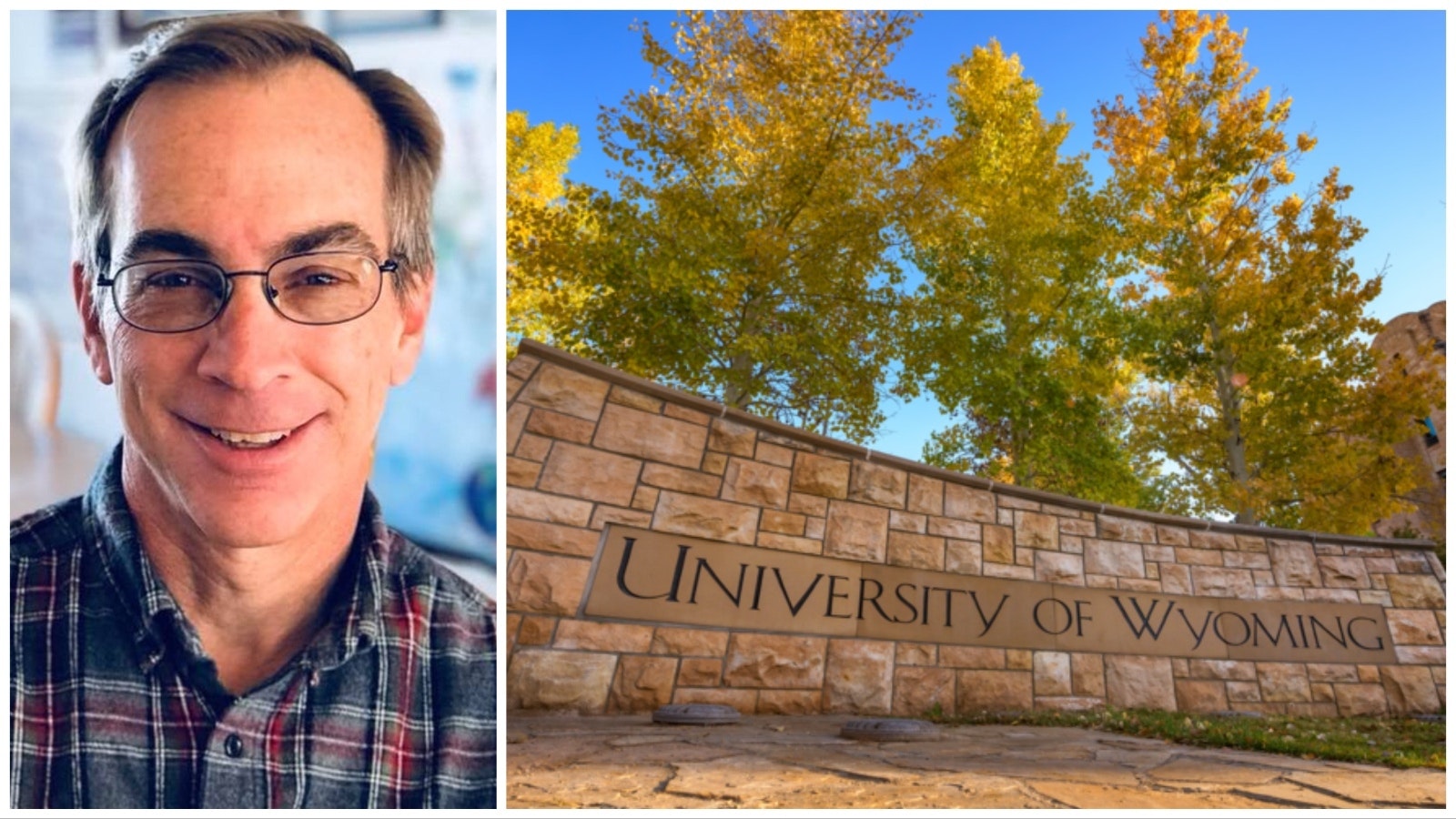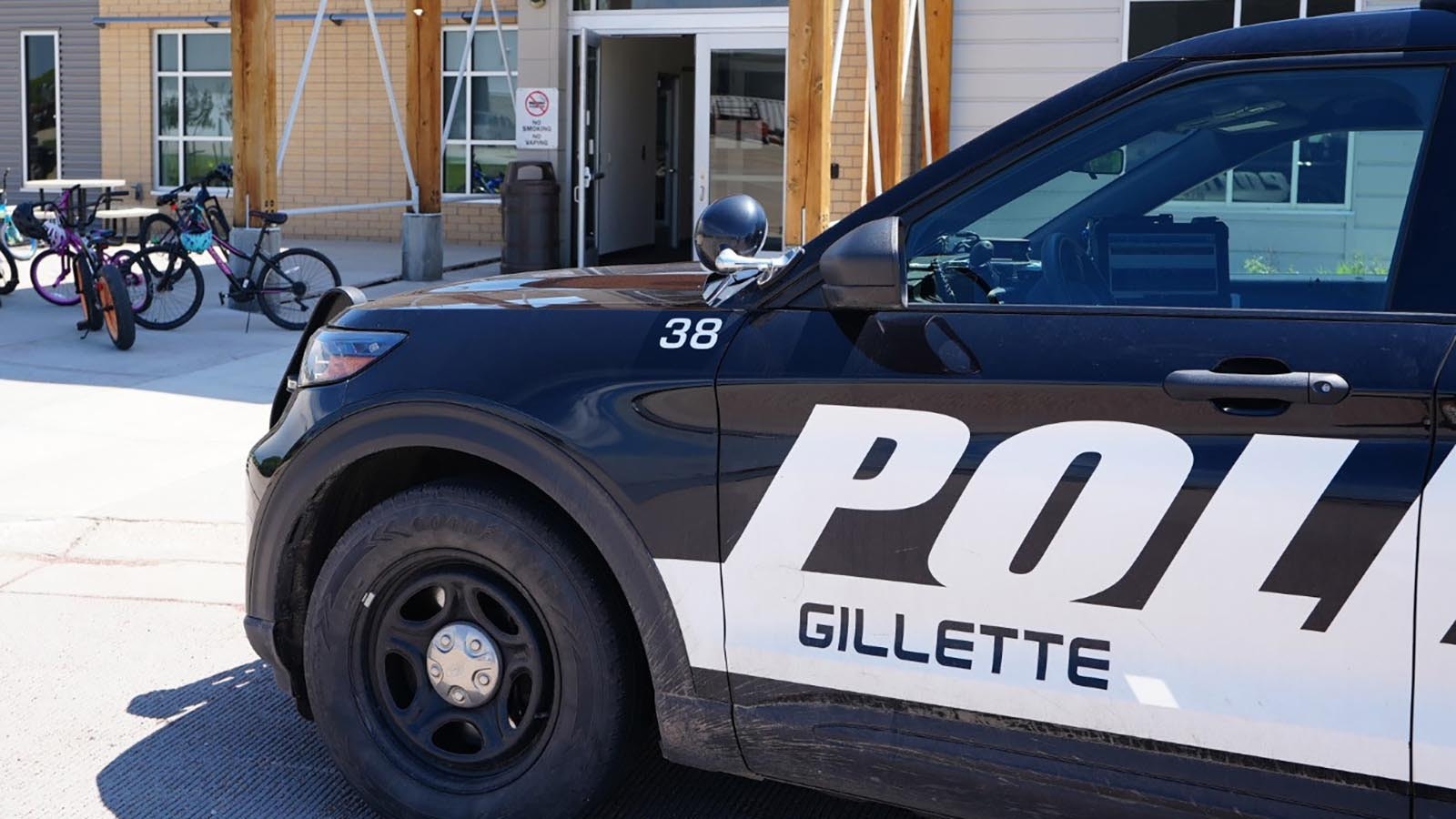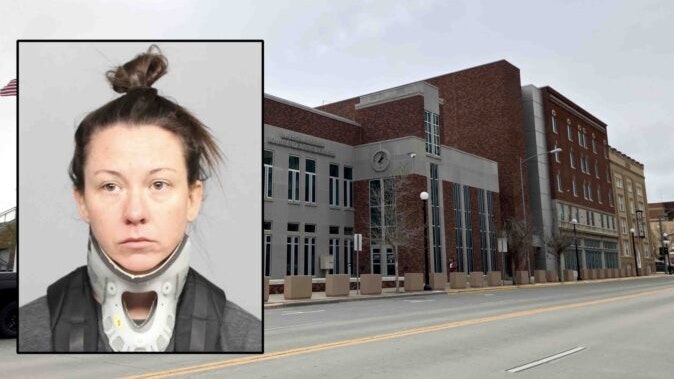University of Wyoming officials are denying they violated the free-speech rights of a Laramie church elder who displayed a sign in the school’s student Union breezeway calling a transgender sorority member a male.
Todd Schmidt, a Christian church elder, is suing UW President Ed Seidel and Dean of Students Ryan O’Neil, saying they violated his First Amendment right to free speech by making him alter the sign on his permitted table in the student Union on Dec. 2, then by suspending his tabling privileges for one year.
Schmidt’s sign originally read, “God created male and female, and Artemis Langford is a male.” It referred to Langford as the Kappa Kappa Gamma sorority’s first transgender inductee into its UW chapter.
Seidel and O’Neil responded in multiple court filings Monday, asking Wyoming U.S. District Court Judge Nancy D. Freudenthal to dismiss key portions of Schmidt’s lawsuit and denying they violated his rights.
“(We deny that we) denied his fundamental rights of free speech, due process, and equal protection, and deny that Plaintiff has been subjected to any unconstitutional conditions,” reads Seidel and O’Neil’s response.
Cheyenne attorneys Robert C. Jarosh and Erin E Berry submitted the responses on behalf of the University.
Discrimination And Harassment
The university officials claim in another filing that Schmidt’s rights weren’t violated because he wasn’t engaged in protected speech, but in an act of harassment.
“(He was) publicly targeting a University of Wyoming student to discriminatorily harass her based entirely on her membership in a protected class,” reads the filing.
Another document adds: “The University’s response was appropriate and lawful, especially considering Plaintiff’s prior misconduct and the University’s legal obligations.”
Schmidt is suing Seidel in his official capacity, but he’s suing O’Neil both as a university official and personally.
Government officials performing discretionary functions are generally shielded from civil liability if their conduct doesn’t violate clearly established rights, the filing says, quoting from the 1982 U.S. Supreme Court case Harlow vs. Fitzgerald.
O’Neil wasn’t violating Schmidt’s rights, the filing claims, because Schmidt allegedly wasn’t engaged in protected speech.
“The right (Schmidt) asserts — the right to harass and/or discriminate against a student at a table in a University student union based upon her membership in a class protected by law … is not clearly established, nor is it a right at all,” reads the filing. The document calls Langford a “transgender female” and a member of a class legally protected from discrimination.
Due Process
Schmidt’s complaint claims the university officials violated his due process rights by using an unconstitutionally vague policy to stifle his speech.
The school’s policies forbid harassment and discrimination. Student Union policies forbid displays that don’t value diversity.
“(Schmidt) fails to identify specific facts as to why the University policies are vague,” says the officials’ filing. “To the contrary … (he) makes clear that he understood the policies — he just thinks they were wrongly applied to him.”
Discrimination
Schmidt also alleges the university discriminated against him by stifling his speech and no one else’s.
The officials, conversely, have pinned Schmidt’s claim to their counterclaim that his speech wasn’t protected.
If he’s going to prove discrimination, Schmidt has to show how other people — either everyone else or non-Christians specifically — engaged in similar activity but didn’t receive the same consequences he did.
The university officials allege that Schmidt failed to show this because no one else was “similarly situated.”
“(There’s) a complete lack of facts identifying similarly situated individuals outside of his religion that harassed or discriminated against a student based on his or her membership in a protected class but were allowed to continue to reserve a table in the Wyoming Union breezeway,” says the filing.
The university officials assert, conversely, that “misgendering” someone may constitute unlawful discrimination.
They cite a 2021 federal case in which an Indiana court sided with a school district for firing a teacher who refused, based on his religion, to call transgender students by their preferred pronouns.
Schmidt’s case is ongoing. The court has not yet determined whether Schmidt’s speech was protected under the First Amendment or constituted harassment.
The 11th Amendment
If the court dismisses Schmidt’s claims against O’Neil in her personal capacity and leaves only the two defendants acting in their official capacities as state agents, then some of Schmidt’s demands may be barred by the 11th Amendment, the officials claim.
The 11th Amendment bars damages lawsuits involving money against the state and its agencies, says the filing.
Schmidt is asking for nominal damages, that is, a small amount of money to signify his victory.
He is also asking for the court to issue preliminary and permanent injunctions blocking Seidel and O’Neil’s actions against him, to declare Schmidt’s position correct and to declare UW’s action a violation of his First and 14th Amendment (due process) rights.
Get Back
The officials’ filing opposing Schmidt’s motion for a preliminary injunction unveils some history between Schmidt and the Union staff.
Schmidt was in the habit of getting out from behind his table and speaking confrontationally with students, in violation of the Union rules, the filing claims.
One student complained April 30, 2022 that Schmidt ran after him when he refused to talk to Schmidt. A student staff member complained Nov. 11, 2022 that Schmidt left his table to confront the young man about his shirt, the filing alleges.
“Various individuals have complained about how Plaintiff treats female members of the University community,” reads the filing, adding that Schmidt allegedly told a female student he “does not respect female authority.”
University Employees ‘Felt Unsafe’
On Dec. 2 when Schmidt displayed a sign about Langford, people reported a “commotion” in the union as several students stood in front of the sign to block it from view.
After “some back and forth” between O’Neil and Schmidt and after a University police officer arrived, Schmidt removed Langford’s name from the banner, says the filing.
Schmidt stayed at the table the rest of the day with his altered sign.
Wyoming Union employees met in the days that followed. They’d received reports from employees “who felt unsafe and did not want to come to work,” the filing says.
Though banned from his table for a year, Schmidt still can visit the university and present.
An Accusation Of Bullying
The officials claim Schmidt “continues to unrelentingly target the transgender female student (Langford) in court filings and the press.”
Schmidt’s complaint addresses Langford’s larger-than-average height and weight and discusses whether Langford has undergone treatments to appear female. It also includes fact claims from a separate lawsuit, in which six Kappa Kappa Gamma sorority members are suing their sorority headquarters for allegedly breaking its own rules to admit Langford.
“Even though,” says the officials’ filing, “he could not possibly have first-hand knowledge” of those claims.
“If there was ever a question about Plaintiff’s intentions as to the student, the answer became clear after (Schmidt) filed his complaint,” the document adds.
The officials include these details in apparent support of their harassment counter-claims against Schmidt.
Clair McFarland can be reached at clair@cowboystatedaily.com.





